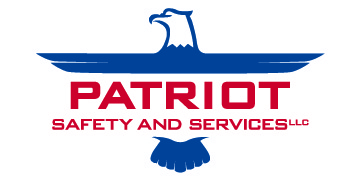The Compliance Burden Facing DOT-Regulated Businesses
Employers operating in DOT-regulated industries face a high level of scrutiny when it comes to drug and alcohol testing. Whether you manage a trucking fleet, a pipeline crew, a school transportation contract, or an independent CDL operation, federal law requires a structured, documented, and consistent testing program for any employee in a safety-sensitive role. The expectations are clear—and the consequences of noncompliance can be severe.
Yet many employers, especially those with smaller teams or limited compliance staff, struggle to manage the administrative complexity involved. That’s why DOT consortium services have become an essential solution. These services make it possible for employers of all sizes to meet federal testing requirements without building an internal compliance department or taking on unnecessary risk.
What DOT Consortium Services Include
DOT consortium services allow multiple employers to participate in a shared drug and alcohol testing program that meets the requirements set forth by 49 CFR Part 40 and agency-specific regulations, such as those from the FMCSA, FAA, FTA, PHMSA, and FRA. The primary function of a consortium is to manage random testing pools and ensure that all selections, collections, and documentation are performed correctly.
A consortium administrator—usually a third-party administrator (TPA)—handles the entire testing process on behalf of participating employers. This includes random selection notifications, test coordination, lab analysis, results review, and compliance reporting. For small employers and owner-operators, enrollment in a consortium is often the only practical way to meet the random testing percentage requirements mandated by the DOT.
DOT consortium services also typically include access to pre-employment drug testing, post-accident testing, reasonable suspicion testing, return-to-duty procedures, and follow-up programs. All of these testing types must follow specific federal guidelines, and the consortium ensures that each one is administered correctly, documented thoroughly, and available for audit review.
Who Needs to Join a DOT Consortium
Owner-operators are required to be part of a DOT consortium in order to operate legally. Since a single driver cannot manage their own random testing pool, consortium participation becomes mandatory for any CDL holder working independently under their own DOT authority. Without documented enrollment, these drivers are not considered compliant and risk being placed out of service.
Small employers with fewer than 50 covered employees also benefit from joining a consortium rather than managing an internal program. The administrative burden of organizing and tracking a random testing program—plus maintaining required documentation, handling MRO reviews, and coordinating with collection sites—is often disproportionate to the size of the business. DOT consortium services relieve that burden and provide a streamlined path to compliance.
Larger companies, too, can benefit from the structure and oversight provided by a consortium. Businesses that operate across multiple regions or job sites may use DOT consortium services to centralize their compliance processes and standardize testing across locations.
Why Random Testing Compliance Is So Critical
Random drug and alcohol testing is one of the most heavily audited aspects of a DOT-regulated compliance program. Employers must ensure that selections are made using a scientifically valid method, that required percentages are met each year, and that tests are performed promptly and documented correctly.
Failing to meet random testing requirements—or failing to maintain proper records—can result in DOT enforcement action, including fines, operational restrictions, or disqualification from federal contracts. Even if your company has never had a positive test result, failure to comply with testing protocols is treated as a serious violation.
DOT consortium services reduce these risks by placing the responsibility for random pool management into the hands of experienced compliance professionals. Employers receive notifications when an employee is selected and can rely on the consortium to coordinate the test, track results, and maintain proper records.
Benefits Beyond Random Testing
While most employers think of DOT consortium services primarily in terms of random testing, the benefits go well beyond that. A well-managed consortium program provides:
- Centralized recordkeeping
- Coordination with certified labs and MROs
- Secure and accessible documentation for audits
- Expert guidance on compliance questions
- Assistance with policy creation and employee education
- Emergency support for post-accident and reasonable suspicion tests
- Guidance on how to handle positive tests, refusals, and return-to-duty requirements
Employers that use DOT consortium services typically find that their overall compliance posture improves. Testing becomes more consistent, records are easier to access, and supervisors gain a clearer understanding of their responsibilities.
How Patriot Safety and Services Delivers Reliable DOT Consortium Services
Patriot Safety and Services provides DOT consortium services tailored to meet the needs of employers across the transportation, logistics, construction, and utility sectors. Whether you’re an owner-operator, a small fleet, or a growing regional business, we offer scalable support designed to keep your operation fully compliant and audit-ready.
We manage all aspects of DOT drug and alcohol testing, including enrollment in a shared random testing pool, scientifically valid selections, 24/7 test coordination, and secure digital recordkeeping. Our consortium members benefit from a national network of certified collection sites, fast results reporting, and access to licensed Medical Review Officers (MROs).
For DOT-regulated employers, our team also provides:
- Pre-employment screening coordination
- Post-accident testing with emergency response options
- Supervisor training for recognizing reasonable suspicion
- Return-to-duty and follow-up test scheduling
- Policy development aligned with federal and state regulations
Our systems are designed for efficiency, transparency, and compliance. Employers receive digital reports that can be accessed instantly for internal review or DOT audits, and our support team is available to answer compliance questions and help navigate unusual testing scenarios.
Making Compliance Scalable and Sustainable
One of the challenges many businesses face is scaling compliance as they grow. What worked for a two-person operation may not hold up as the team expands to ten, twenty, or fifty drivers. DOT consortium services provide a flexible structure that allows you to grow your workforce without reinventing your testing program.
Because the consortium handles the testing infrastructure, employers can focus on their core operations without getting bogged down in administrative details. Whether you’re opening a new location, adding new drivers, or updating internal policies, your compliance support remains consistent.
This consistency is particularly valuable in industries where contracts require proof of testing history or in businesses that undergo routine compliance reviews. With centralized documentation and a partner like Patriot managing the program, you can respond quickly to inquiries and operate with confidence.
Why DOT Consortium Services Are a Smart Investment
Joining a DOT consortium is not just about checking a regulatory box. It’s about creating a sustainable, reliable, and professional testing program that reflects your company’s commitment to safety and compliance. When handled internally, drug and alcohol testing can become a source of stress, distraction, or even risk. When managed by experienced professionals, it becomes an asset.
DOT consortium services improve your risk profile, strengthen your ability to pass audits, and ensure that you can continue operating without disruption. For many employers, the decision to join a consortium is a turning point—where compliance goes from reactive to proactive, and where testing becomes part of a larger strategy to protect the business and its workforce.





